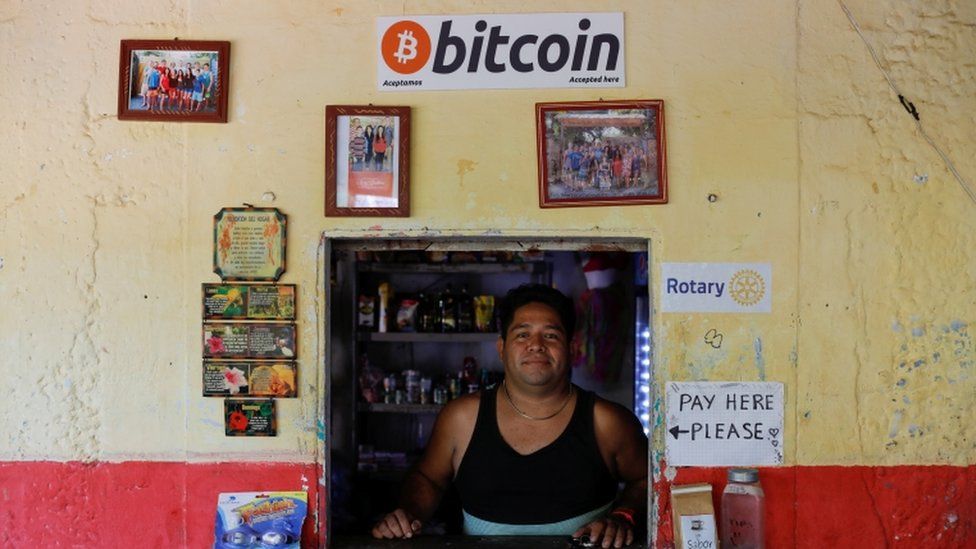It has been interesting to find people within governments trash talking crypto currency. “No way it will become mainstream.” “Doesn’t have backing of a sovereign government, so …”

But El Salvador has accepted and endorsed cryptocurrency (Bitcoin) as a mechanism of payment. (See June 9, 2021 BBC article.) They already accept the US Dollar, but now they will also accept Bitcoin after Sept 7, 2021. Business must now accept bitcoin as legal tender (unless they don’t have the technology to do so).
Many friends and family send money back to El Salvador. “El Salvador’s economy relies heavily on remittances, or money sent home from abroad, which make up around 20% of the country’s gross domestic product (GDP).” Getting money back home can be rather expensive using money orders and such. Bitcoin is a rather frictionless method of payment.
El Salvador is seriously leveraging this new move into the future: “The government even went a step further in promoting the cryptocurrency’s use by giving US$30 in free bitcoins to citizens who sign up for its national digital wallet, known as “Chivo,” or “cool” in English. Foreigners who invest three bitcoins in the country – currently about $140,000 – will be granted residency… Panama is considering following El Salvador’s lead.” (the Conversation).
Since US Dollars is the major currency for global transactions, it will be interesting to see how this develops???
Blockchain is a big component of secure transactions that can culminate in a blockchain payment in cybercurrency. Does a more rapid move to cybercurrency mean an equally rapid move to blockchain for other purposes including supply chain???
Is it better to just buy bitcoin (or Etherium, or Dogecoin), or invest indirectly with companies that process payments (PayPal and Square) or do blockchain data mining (RIOT, for example)?
Although El Salvador is the only country to legalize bitcoin as legal tender, many countries (US, Canada, EU, etc.) are friendly to cybercurrency; other countries not so much so (China and Russia). (See Investopedia on countries.)
One of the “benefits” of cybercurrency, is that transactions can be untraceable…. ???
According to Chainalysis, only 2.1% of bitcoin activity is associated with illicit activities in 2019, but dropped to 0.31% in 2020 (see Forbes). Will cybercurrency replace cash as the payment method for transactions that parties would prefer not to have monitored (or taxed)?
#economy #bitcoin #blockchain #cybercurrency #scenarios #investment

Leave a Reply
You must be logged in to post a comment.